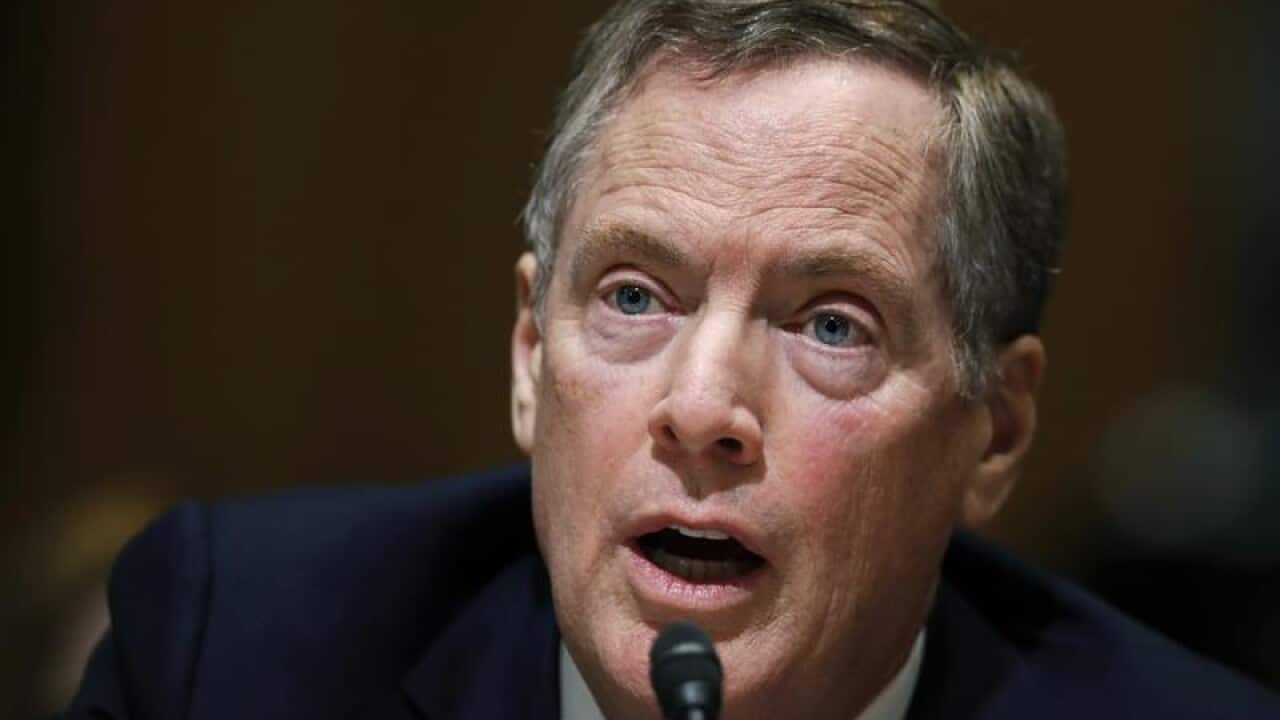US President Donald Trump is close to a decision on how to respond to what he considers China's unfair trade practices, a senior Trump administration official says.
Trump is considering encouraging US Trade Representative Robert Lighthizer to initiate an investigation of Chinese trade practices under the 1974 Trade Act's section 301, the official said.
An announcement could come as early as this week, the official said, speaking on condition of anonymity.
Section 301 of the Trade Act of 1974 allows the president to unilaterally impose tariffs or other trade restrictions to protect US industries from "unfair trade practices" of foreign countries, such as trade agreement violations, or "discriminatory" actions that burden US commerce.
The United States has a long list of grievances about China on trade, including accusations of steel dumping and theft of US intellectual property.
Trump has long been a critic of Chinese trade practices but his interest in penalising Beijing has risen due to his concern at what he perceives to be Chinese inaction on reining in increasingly belligerent North Korea.
China's Foreign Ministry said this week the North Korean nuclear issue did not arise because of China and that everyone needed to work together to seek a resolution.
Section 301 was used extensively in the 1980s to combat Japanese imports of motorcycles, steel and other products - an era during which Lighthizer served as deputy US trade representative.
But the statute has been little used since the World Trade Organization was launched in 1995.
The WTO provides a forum for resolving trade disputes, but Lighthizer and Commerce Secretary Wilbur Ross have complained that this is extremely slow, often taking years to reach a conclusion, and that the Geneva-based organisation has an inherent anti-US bias.









